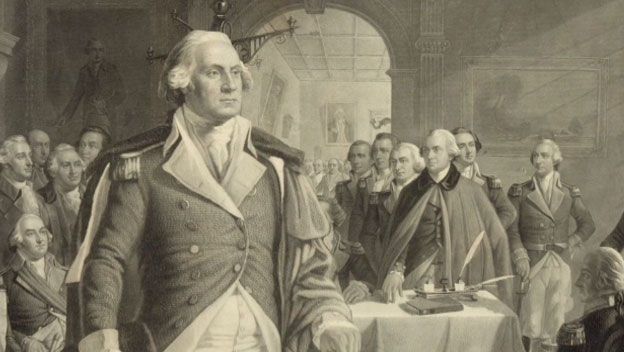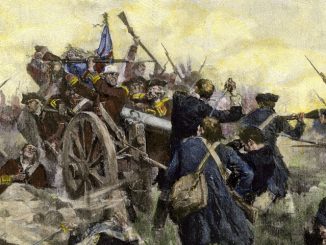
Widget not in any sidebars
The Continental Congress’ inability to promptly pay or adequately supply its soldiers persisted throughout the war and continued as a subject of debate following the peace at Yorktown. Two major ramifications of the financial crisis marked the birth of the new nation. First, Congress began to pay soldiers with promises of western lands instead of currency—the same land Congress simultaneously promised to its Indian allies. Secondly, Congress’ inability to pay expenses even after winning the war eventually convinced conservative Patriots that it was necessary to overthrow the Articles of Confederation and draft the Constitution of the United States. The new and more centralized Constitution, with its three branches of government, had greater authority to raise funds and an increased ability to manage the new nation’s finances. Alexander Hamilton, in his role as the first secretary of the treasury under President George Washington, focused his efforts on mimicking British financial institutions, most significantly in his championship of the First Bank of the United States, as a means of stabilizing the new nation’s economy.






Be the first to comment